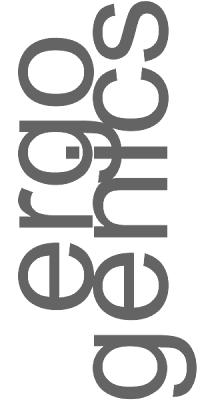 |
|
Slecht slapen door een schermverslaving? Luteïne helpt
Als je veel achter een scherm zit, dan slaap je misschien slecht. Digitale schermen produceren energierijk blauw licht dat je slaapcyclus ontregelt. Onderzoekers van de universiteit van Georgia in de VS hebben ontdekt dat suppletie met luteïne daartegen beschermt. Da's niet zo verwonderlijk. Luteïne, een stof in boerenkool en bladgroenten, absorbeert in het netvlies energierijk licht.
Studie
De onderzoekers experimenteerden met 48 studenten, die allemaal minstens 6 uur per dag een scherm voor hun ogen hadden. Of dat een computerscherm, het scherm van een laptop, een e-reader of een smartphone was, dat maakte niet uit. Als de afstand tussen de ogen en het scherm maar 90 centimeter of minder was en er dus relatief veel energierijk blauw licht van het scherm de ogen bereikte.
Blauw licht stimuleert de hersenen. Blootstelling aan de licht tijdens de avonduren kan de kwaliteit van de slaap aanmerkelijk verminderen. Daarom adviseren slaapexperts om 's avonds niet meer voor een scherm te gaan zitten.
Diezelfde hoeveelheid carotenoïden zit ook in 130 gram gekookte boerenkool of 160 gram spinazie.
Resultaten
De placebogebruikers rapporteerden geen verbetering van de slaap, de proefpersonen die luteïne kregen [MC] wel. Daarnaast verminderde het supplement hoofdpijn en klachten over vermoeide ogen.
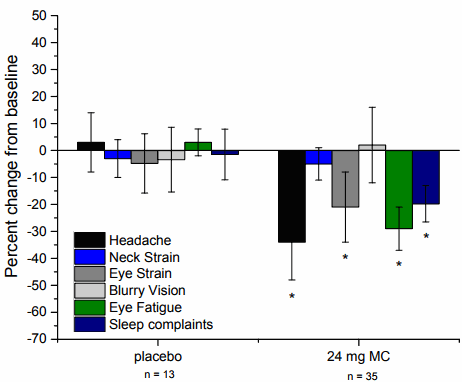
"Supplementation with macular carotenoids have the effect of increasing macular carotenoid optical density, but also have wide-ranging systemic antioxidant and anti-inflammatory effects", denken de onderzoekers hardop.
"It could be, therefore, that systemic reduction of oxidation and inflammation ultimately manifests as better overall sleep quality. Additionally, a recent report suggests that supplementation with macular carotenoids for six months significantly reduced psychological stress and serum cortisol. [Nutr Neurosci. 2017 Feb 15:1-11.] Because psychological stress is often noted as a significant factor for insomnia, its reduction may account for the beneficial effect on sleep quality seen in the present study."
Conclusie
"The results of the present study speak to several of these issues, and offer a benign, nutrition-based therapy for reducing the incidence of many undesirable outcomes associated with excessive screen time", schrijven de onderzoekers.
"Although the effects presented in this study appear to be reasonably uniform among subjects and generally commensurate with retinal response to macular carotenoids supplementation, they motivate the need for additional, larger studies in research in populations other than college-aged individuals."
"For example, children younger than 10 years old are known to have exceptionally clear crystalline lenses, and may have not had sufficient time/dietary habits to accumulate appreciable macular pigment. The clarity of the lens (which normally yellows slightly with age) means that more high-energy blue light will reach the retina, where a lack of macular pigment may compromise the ability of the retina to deal with the oxidative stress."
"Given the recent dramatic rise in the use of handheld devices/computers by this age group, it would be interesting to determine if a nutritional intervention could help with potential visual, physical, or perhaps behavioral outcomes."
Bron:
Foods. 2017 Jun 29;6(7).
Meer:
Luteïne helpt aderverkalking voorkomen door afremmen ontstekingsfactoren (10-7-2017)
Chlorella betere bron van luteïne dan eieren (24-8-2016)
Versnelt luteïne vetverlies? (19-12-2015)
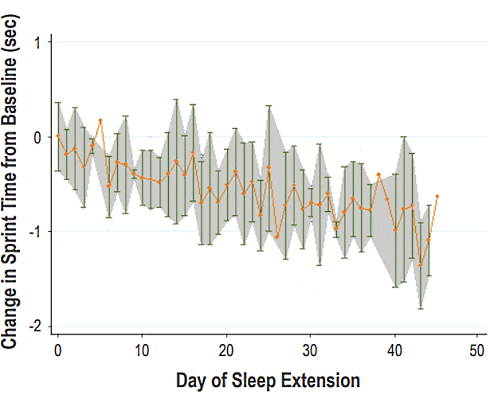 |
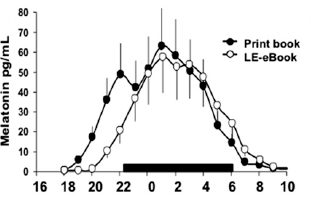 |
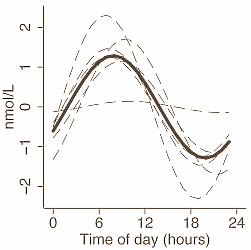 |
|
Geforceerd langer slapen maakt sporters sneller, preciezer en fitter Slaapextensie. Onthoud die term. Je gaat hem vaker horen. |
E-book in bed? Minder slaap, slechtere slaap Electronische schermen zijn slecht voor je slaap. |
Meer slapen kan je testosteronspiegel verdubbelen Denk je aan hormoontherapie? Misschien moet je beter eerst nagaan of je wel voldoende slaapt. |